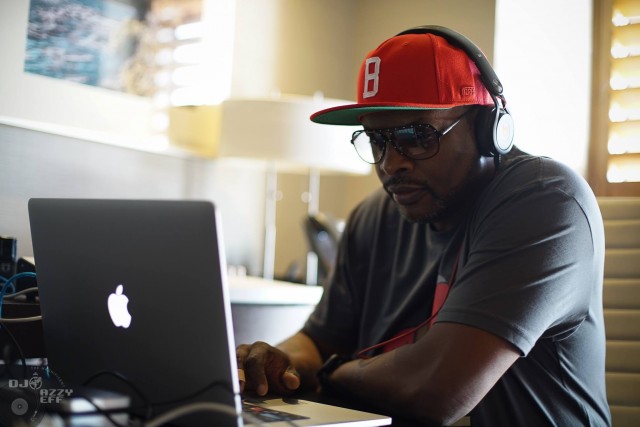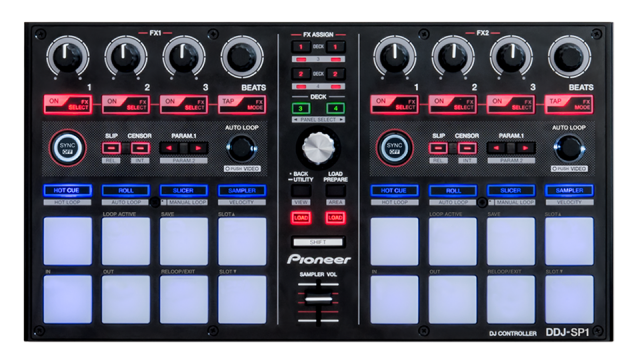Serato and Native Instruments may have a fierce rivalry when it comes to tools. But at the end of the day, the leading DJ vendors exist for one reason: they’re there to support musicians.
And I do mean musicians. Watching new routines from Jazzy Jeff and Shiftee, you really see the turntable emerge as a virtuoso musical instrument.
They’re released as promotions for Serato (Jeff) and Native Instruments (Shiftee). And the tools are important: they’re there to allow these players to make use of their skills, to do more than just select tracks like a jukebox.
But this really is about engineering supporting the human body, supporting physical gestures. I think they also tell us something about who DJs can be in the age of digital DJ technology.
Jazzy Jeff is Philadelphia’s Jeffrey Allen Towne, here covering a Run DMC classic that has me tingling with nostalgia as a tail-end gen Xer. Now could be a perfect moment in his career – a time when young people are rediscovering hip hop DJ roots, and perhaps not so hung up on the DJ Jazzy Jeff & The Fresh Prince association. (Well, or maybe those young people will have additional associations; I’m sure The Fresh Prince of Bel-Air lives on on Netflix and so on.)
What’s great about Jeff is that he draws that connection from the early days of hip hop and rap to modern turntablist technique. And he does so in a way that seamlessly melds tools – the perfect person to show of a digital vinyl control system, in other words.
There’s just one problem. Watching Jazzy Jeff “DJ” is to DJing for a lot of us as listening to a Horowitz performance is for someone who keeps a piano unplayed in the living room. We’ve got the furniture, but we haven’t got the chops – it’s almost like we’re not even involved in the same activity.
Don’t get discouraged, though. Because listening to Jeff I think can be inspiring for anyone working on DJing and live PA.
In particular, in a follow up interview with Serato, Jeff talks about melding the producer and DJ in him. Making a DJ set sound like it was produced in a studio, he says, is: “putting that production brain and that DJ brain together.”
He also has encouraging things to say about DJ culture and the art of DJing. He talks about the importance of “becoming more well-rounded DJs – not only play selection, but your technical skills … your showmanship. To me those are all the things that will end up making a great party.”
And whether or not you’re a great scratch turntablist, Jeff has some words that should encourage you to branch out a little on song selection. Asked about the influence of iPods, he reaches a surprising conclusion about “shuffle mode”:
“I started to realize that people started becoming a lot more accepting of you playing a wider range of music at different times of the night… you can just throw something left-field… because everyone is used to iPods.”
And just saying tech should be “invisible” doesn’t mean it’s less important. It means it’s actually more important:
“The end goal is for the gear to be transparent and … it to be about the way that you deliver the music. … And that’s why I think sometimes the gear doesn’t get enough credit.”
I’ll let Jeff close with these words from Jeff’s SoundCloud. These are important, because I’m sure people can feel now like they are obligated to follow rules, too:
I came up in the Music (Business) where there were rules and guidelines to the way things were done. It never made sense to me. I felt like you can own your own studio,make your own records and put them out how & when you want and even shoot your own videos. I’m soooo happy to finally be in that place now. I hope you enjoy the music i’m putting out now as much as i’m enjoying making it. Welcome to my Independence!!
Uh, that’s one of the best SoundCloud blurbs ever.
And then there’s Shiftee
I’ve been (unintentionally) putting off publishing this story, and then along come Native Instruments with a new S8 video. But here, you’ll be hard pressed to keep your eyes on the S8, because DJ Shiftee is dazzling.
It’s perfect putting Shiftee in this category. He’s a short Amtrak trip up the eastern seaboard, a native New Yorker. But he’s also the younger generation, literally born as Jeff was coming up in the world.
Native Instruments is a company founded by techno-heads in a techno capital, but just as a piano can play classical and jazz, there’s really nothing about Remix Decks or big mixer control surfaces that says anything about genre. I have to rely on the press department for track IDs:
Alt-J – Left Hand Free (Lido Remix)
Low Pros – Who Wanna Play (Feat. Que)
DJ Shiftee – Uh Yo And Also Yo
These are, I’m told, some seriously hot tracks as far as what people are listening to. I only know they’re seriously hot tracks to my ears.
Shiftee is a master turntablist and turntablist educator, too – he’s on the front lines of making sure this tradition stays alive.
Let’s close by talking gear, though, this being CDM.
Jeff vs. Serato
What I like about Jeff’s setup is that it’s versatile but rigorously minimal.
The Pioneer DDJ-SP1 is actually a really cool controller for Serato, one that ought to give Traktor fans some envy. You get four-deck control on pads with a bunch of performance modes – Hot Cue, Roll, Sampler, Slicer, Auto Loop, Hot Loop and Manual Loop. That makes for something that nicely recalls the MPC and dedicated loop hardware, not just the usual DJ business.
And it’s all nice and small. You get all this mileage without giving up a bunch of space.
The mixer is a Serato classic – the Rane Sixty-Two. But I should note that today you also can choose the Allen & Heath xone:43C, a digital version (complete with sound card) of the analog-geared xone:43 we saw last week. More on that later.
http://serato.com/artists/dj-jazzyjeff
Shiftee vs. NI
Not so much to say about the NI side of things. It’s an S8, the flagship controller. The bigger story here is how Shiftee is using it – especially since you can now get the same per-deck functions in a smaller D2 (and use another mixer for that bit).
He’s using it as a mixer for DVS control, fully exploiting the all-in-one capabilities of the unit.
He’s using Remix Decks.
He’s using Freeze Mode.
In fact, the latter two really show a digital approach with visual feedback – not just “playing” the turntables, but the software instrument, too.
Then again, there’s more in common between Shiftee’s and Jeff’s approach fundamentally than different: this is really about playing with your hands, and making something new.
By the way, don’t miss Shiftee’s routine for Dubspot, the training academy / platform, with Maschine in the mix. This is real live performance stuff – more live than a lot of “live” sets, giving DJ some real meaning:
Schooled
So, tomorrow morning, we’ll have a bunch of new DJ gear. But I think this is at the heart of how the handful of master DJs make them into instruments.
A lot of us do occasional mixing, perhaps focusing our performance virtuosity on live PA sets, improvised electronic forms, acoustic instruments, electric instruments, the lot. But I’m glad that whatever happens with the evolution of DJing, it’s still allowing traditional DJ practice to evolve.
For someone, DJing is still about blowing recorded music on turntables wide open.

